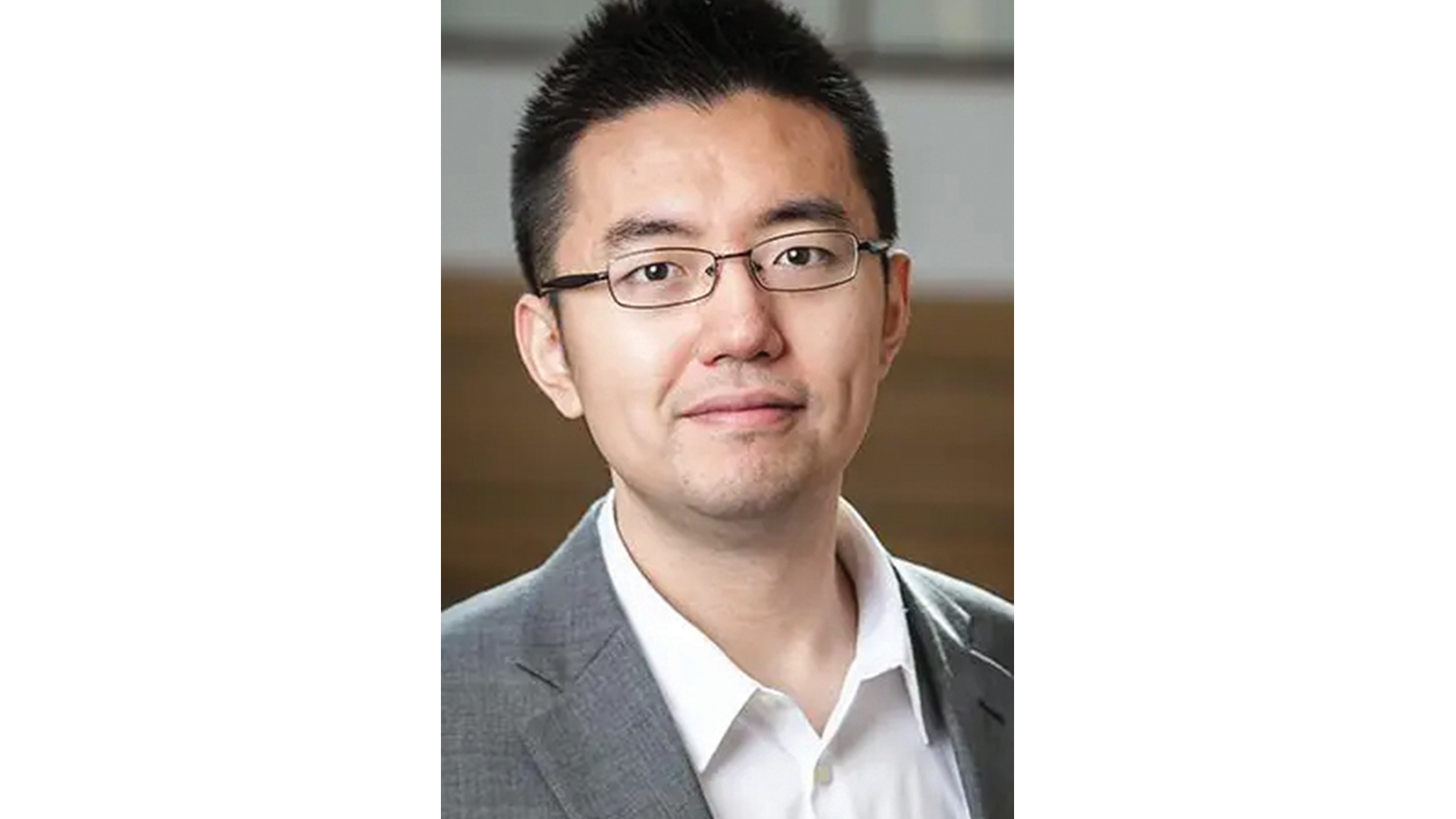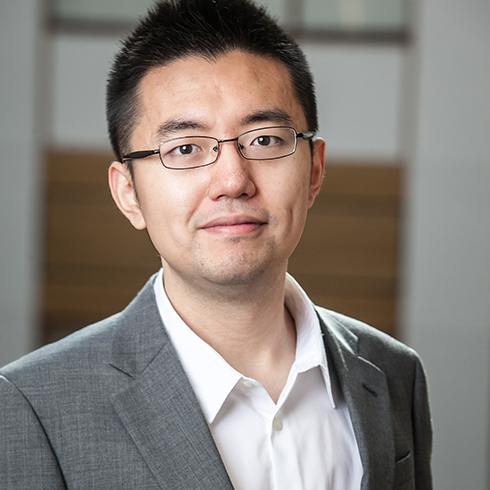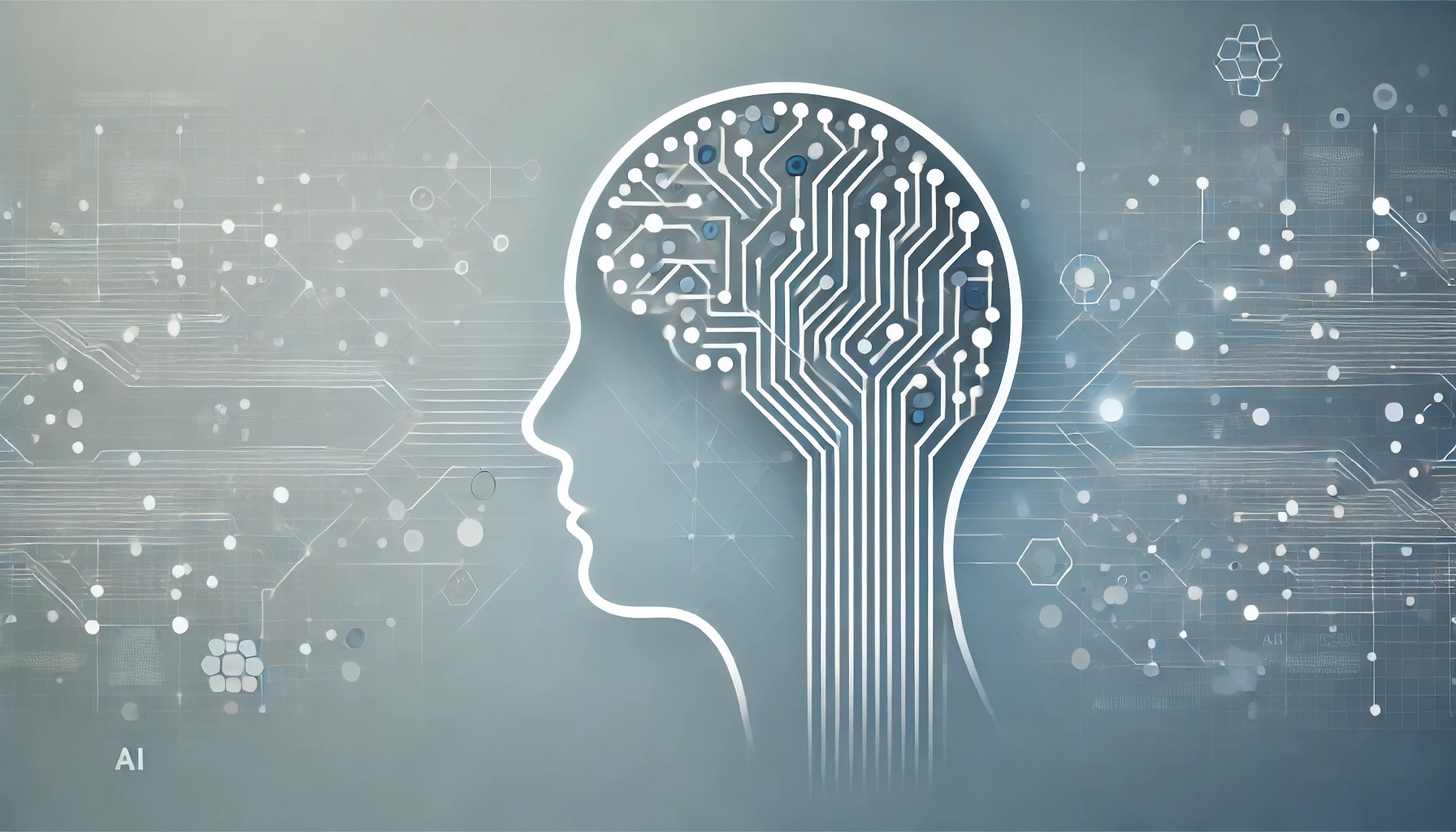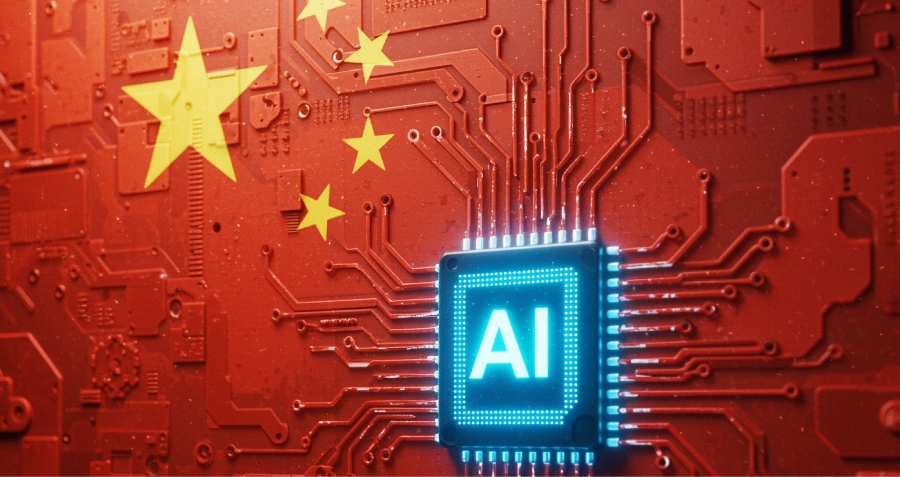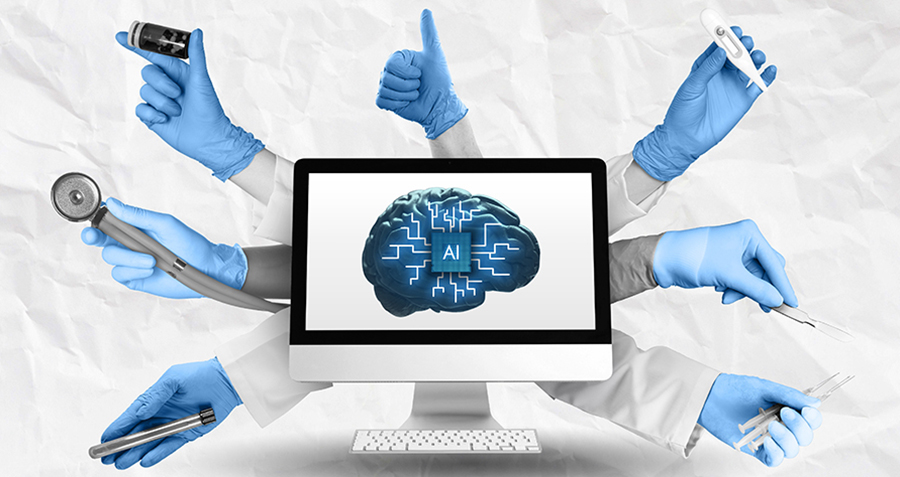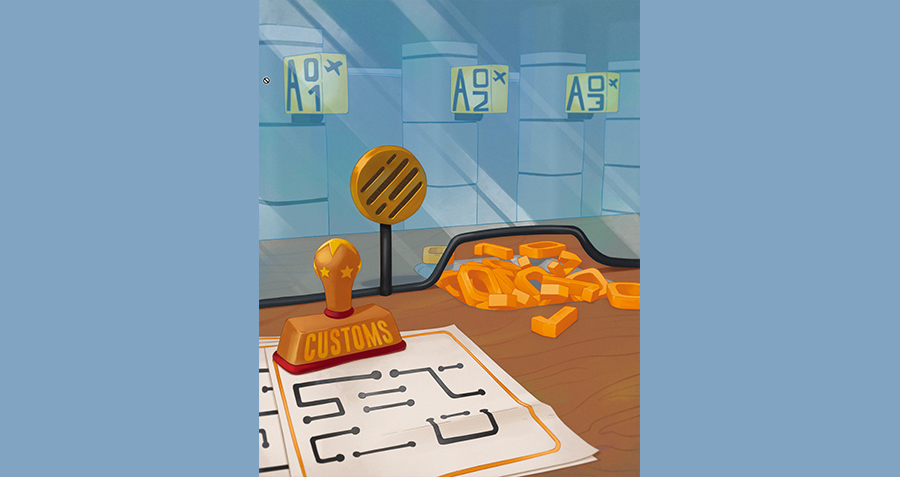Reinventing Work and Education
Throughout history, new tools and technologies have continually replaced, impacted and reshaped human skills and jobs. Artificial Intelligence (AI) has already replaced humans in a wide range of areas including logistics, production inspection and transportation, but so far it has generally been assumed that AI technologies would have limited short-term impact on creative skills and jobs.
But given that ChatGPT can write poetry, code or even complete a science paper on its own, it is a quantum leap compared to previous generations of AI and its impact on human creativity-related skills and jobs will be unprecedented. Since its launch, ChatGPT has sparked much discussion concerning the impact of generative Artificial Intelligence (AI) tools on work and education. One way or another, these tools will have a direct impact on highly complex tasks dominated by creative and cognitive skills, as well as completely subverting the previous order of AI substitution from low-skilled to high-skilled workers, directly affecting knowledge-intensive industries.
Human skills can be broadly summarized into three categories: physical, process-related and creative. Generally, the latter two require a developed education system and long-term talent training. After a person attains a certain amount of education, they acquire skills and exercise creative thinking, thus enabling them to move towards various knowledge-intensive job roles.
As countries move through the transition from labor-intensive to knowledge-intensive industries, nurturing intellectual talents and improving related education and training have become increasingly important considerations for social and economic development. With the advent of ChatGPT, existing approaches to doing this may no longer prove effective.
In the eyes of academia and industry around the world, ChatGPT is an era-defining product and its impact on the labor market, education system, the social economy and even the global division of labor must be fully thought through. The difficulty being that the revolutionary nature of the technology makes it difficult to rely on past experience to make accurate predictions.
At the same time, fighting change would be futile, and we must face the challenges head on with a view to integrating the technology into our future development plans. Instead of focusing on what jobs or skills ChatGPT will replace, we should be thinking about how to co-exist, co-create and co-evolve with the technology.
This means we need to work out how to reconstruct vocational skills training, jobs and education methods, and even the logic of social and economic development, as well as ascertain how to use AI to stimulate cognition, empower innovation, and promote the prosperity and development of human civilization.
What is new about ChatGPT?
ChatGPT (Generative Pre-trained Transformer) is a natural language processing tool launched by OpenAI, backed by Microsoft. It is a deep-learning model of text generation trained on data available on the internet and conducts conversations by learning and understanding human language and is able to interact with people in context. It is not only good at analytical or mechanical cognitive computing, but also at creating or generating new, meaningful and even aesthetic content, such as writing poetry, designing products, making games and programming code.
Compared to previous iterations of AI models, ChatGPT contains five major innovations.
- Language Generation, meaning that it is now capable of handling open language tasks, such as generating copywriting.
- Process Multitasking, allowing it to handle many different types of text questions at the same time, resulting in richer answers.
- Integration of Manual Feedback, enabling it to learn through reinforcement.
- Contextual Understanding, providing more fluid and personalized responses that are useful as smart assistants or educational tools.
- Universality, meaning that the model can grow through use and be applied to a wide range of industries or topics.
More importantly, OpenAI has brought GPT technology to the public by providing it with a chat interface, which allows for a solid user experience and ease of use. There are now over 626 different GPT applications divided into 100 broad categories such as writing assistants, image generation and chat robots etc.
Will ChatGPT replace jobs?
ChatGPT’s performance has reignited discussions about the impact of the AI wave on the labor market. According to our preliminary analysis, GPT does affect certain skills and occupations, but full human-level AI, capable of performing all cognitive and creative tasks that humans can perform, remains a long way off. The question then becomes, which jobs will be affected by ChatGPT and which will be relatively unaffected?
We found that there is no relatively objective measurable standard. With this in mind, we developed a quantitave research framework called Suitability for GPT (S-GPT) to evaluate the correlation between different occupations and the tasks GPT could perform.
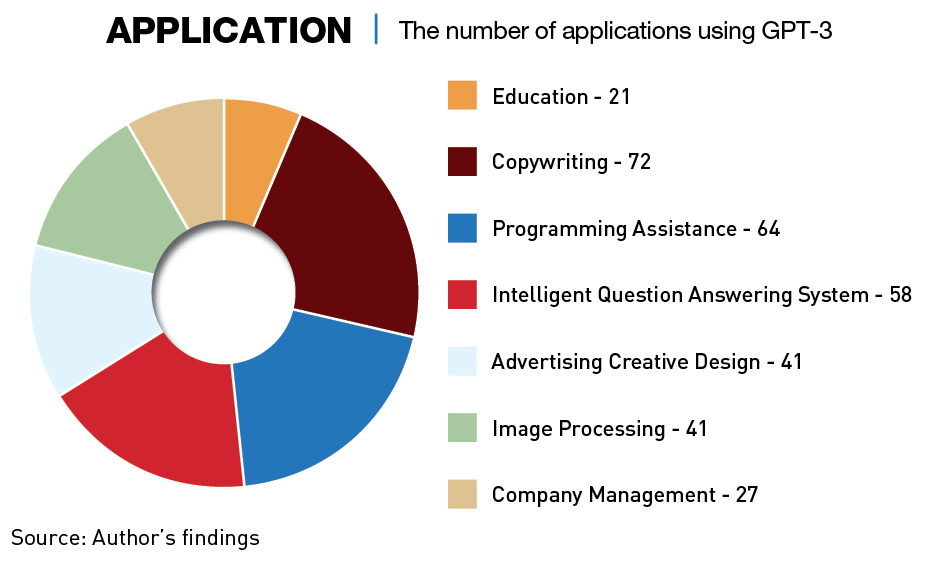
The jobs with low GPT adaptability are mostly offline jobs that rely on physical labor, while the jobs with high adaptability are text-related editors, proofreaders, notaries and software information technology personnel. Some jobs that are recognized as relying on high intelligence, such as editors, translators, educators, accountants, bank workers, etc., are particularly at risk. But this does not mean that these occupations will be replaced in an instant. From past experience, technological change will make some skills and jobs redundant and others more valuable, and in addition, completely new jobs will emerge.
The long-term impact
In the S-GPT analysis, we view an occupational position as a combination of different tasks and skills, some of which are more likely to be replaced by new technologies, while others are less likely to be replaced and are therefore more valuable. The impact of ChatGPT on the labor market ultimately lies in the deconstruction, reconstruction and re-creation of work tasks. Therefore, we believe that the impact of ChatGPT on the labor market will mostly be long-term and complex.
We also believe that ChatGPT technology will affect some industries and areas in the short-term, replacing some low-skilled or repetitive work and even some of the more intellectual work. There will be unemployment or job losses, but the possibility of completely replacing a job role is low.
In customer service, for example, ChatGPT can be centralized into a website application to improve the efficiency and quality of services, as well as being available 24 hours a day. But there will still be times when humans are required for customer service issues and dealing with complex problems.
In the medium term, ChatGPT’s possible impact on the labor market falls into two categories: boosting or amplifying skills to enhance existing career values; and the creation of new high-skilled jobs and the emergence of new occupations or industries.
Despite the power of ChatGPT to complete certain tasks faster and more accurately than humans, over a longer time span, with job restructuring and education training, the substitution effect of ChatGPT becomes weaker, and the enhancement effect on specific skills and occupations becomes more obvious.
Looking at a historical example, the advent of electronic forms reduced the need for bookkeepers, but increased the demand for workers skilled in handling software data. So, in the end, technology can enhance or amplify human skills and create new jobs and industries.
To illustrate this point, let’s look at where ChatGPT works best: text content generation. We believe that ChatGPT’s impact on content producers will not be devastating, but will drive them to innovate and transform. In the case of novel writing, as long as the idea, framework and key plot points are provided to ChatGPT, a fully structured manuscript can be generated, and soon we will be able to read novels produced by ChatGPT in bulk. However, high-quality works written by human authors with richer content, more sophisticated structures, and a heavier spiritual core will still have a market, and will not be replaced. Rather they will have higher value.
When it comes to the creation of new jobs, we have already seen the emergence of ‘prompt engineers,’ whose main job is to generate solid questions for ChatGPT in order to get the AI to produce desired results. The Atlantic magazine called this “the most important career skill of the century.”
In addition, there are machine learning engineers, data scientists, natural language processing experts, among many others. These professions require not only higher levels of technical, engineering and analytical skills, but also the full use of human intelligence and creativity. Humans have unique advantages over AI that will, for now, remain irreplaceable in some situations.
In the long run, business models and industry competition will be reshaped. In order to co-exist, co-create and co-evolve with ChatGPT we need to proactively embrace the GPT model and related tools and process in our work and education. For example, artists, writers and editors can use AI to integrate their unique experiences, stories and design elements into AI to help better their content. This will dramatically change the form of creative work, blurring the boundaries between cognitive and creative tasks, rather than replacing the artist. It will involve a different way of working.
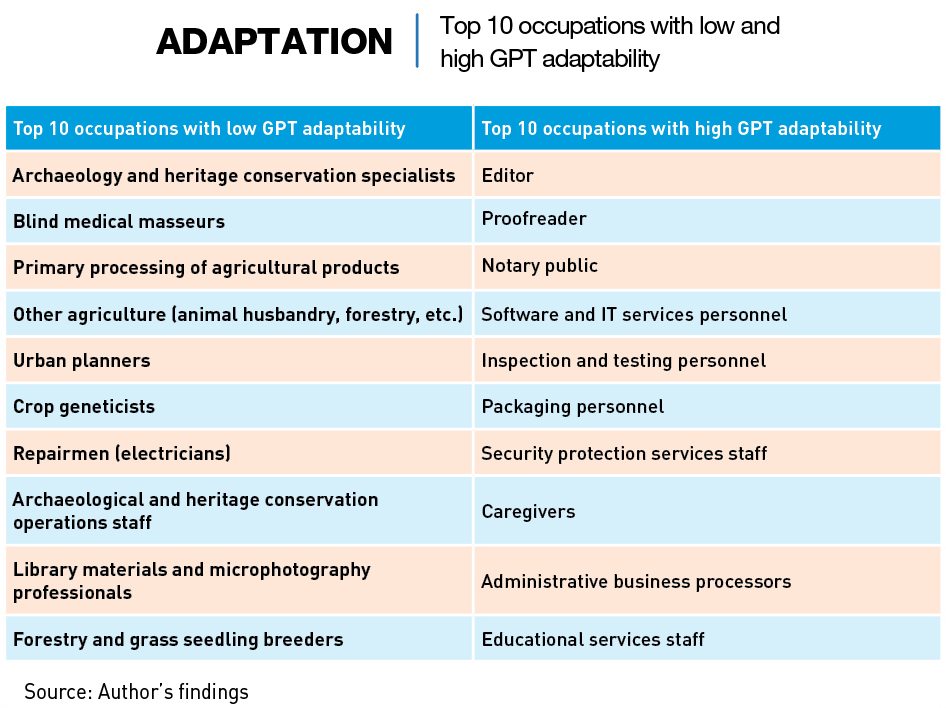
The in-depth application of ChatGPT in various industries will also be accompanied by the dismantling and reconstruction of many business processes and tasks. At that time, basic jobs will no longer be recruited for, or will be reduced to a very small number, and technicians who can integrate AI tools and original people with creative thinking and deep thinking will be more highly valued.
In daily work, low-skilled tasks are more dependent on AI processing, and the way to obtain and process information will also change. As a result, greater emphasis will be placed on developing human-specific capabilities, such as innovation, collaboration and socialization, to cope with future changes in society’s labor market.
Education integration
ChatGPT’s impact on education has been obvious and given the interlinkages of education and labor skills, this is of equal importance to the future. There are already multiple studies showing a large number of university students are using ChatGPT both as a tool for retrieving information and for completing assignments or exams.
At present, the educational community is generally cautious about ChatGPT, with many schools in the US banning the tool due to concerns about cheating, IP issues and the impact on students’ ability to learn and practice. Several scientific journals have also banned ChatGPT from being a “co-author.” Some education experts believe it is a form of “high-tech plagiarism” and “a way to avoid learning,” and according to Jenna Lyle, a spokeswoman for the New York City Department of Education, “ChatGPT does not foster critical thinking and problem-solving skills that are critical for academic and lifelong success.”
However, some argue that the advent of ChatGPT is an opportunity for traditional education to be reformed, or even completely overhauled. From the perspective of technology application, ChatGPT can have many positive effects on the education industry, such as helping students to learn independently, personalized teaching, improved teaching efficiency and teaching level, improved auxiliary tools, which all promote the modernization of education and the development of more inclusive learning.
In the long run, the development and application of ChatGPT technology will unquestionably have a huge impact on all education systems. We believe that the root of the issue of proper adoption lies not in ChatGPT itself, but in how we view education and how we think about the challenges and opportunities that AI presents.
First of all, ChatGPT will likely redefine what talents will be needed in the future to ensure the progress of human society. ChatGPT will eliminate the advantages of the current education system in terms of training students, and many knowledge skills may be replaced by AI. What society really needs, then, will be more creative people, people who have the ability to ask questions, analyze problems, solve problems, synthesize knowledge and think critically.
Therefore, the primary goal of education should be to train people in independent thinking, to make balanced value judgment and the ability to innovate, rather than simply acquiring specific knowledge. This requires us to reconsider which knowledge is the most important, but also requires the education, science and technology industries to jointly explore the issue.
The three ‘c’s
It is also necessary to explore a new path: how ChatGPT can co-exist, co-create and co-evolve with the current education system to better achieve educational goals. Some educational institutions have already begun to address the problem.
Hong Kong University’s ban on ChatGPT is a temporary measure, and the school is encouraging staff and students to discuss suitable solutions and uses together. Some high school teachers have begun to shift away from rote learning towards more socially interactive systems of evaluation.
One major change needed is for us to move from stressing good answers to prioritizing good questions. How to effectively talk and collaborate with machines has become especially important, and asking good open questions is a top priority, because the value of asking these questions has gone up at the same time as answers from original questions have also increased in value. Therefore, talent that has their own unique approach and can ask good questions is the goal of future talent training, while rote memorization will be eliminated.
We also need to really integrate AI tools into education and vocational skills development, learning content, learning methods and the work environment. To make use of this new technical power to improve education levels and vocational training, people need to be able to master a new generation of AI tools such as GPT to the same degree they have adopted computers and mobile phones.
With the help of AI tools, students can customize learning content according to their own foundation, needs and interests, so as to obtain a better learning experience and effect, and fully release their potential.
At present, it is difficult to create personalized content, which can hamper the development of students. With the help of technology tools, students can play to their own advantages through independent learning, combining their interests and expertise to continuously develop their own abilities. This can also solve the social problem of insufficient educational resources in China, particularly in remote mountainous areas, and help achieve educational equality.
AI-based and -related education can teach self-learning and self-development methods and habits to students, which can extend to vocational education and lifelong learning.
Future fears or future fun?
Looking to the future, the exact impact of ChatGPT on labor and education remains to be seen. But what is certain is that ChatGPT will profoundly change the way we produce and live, work and learn, restructuring the industrial landscape.
Furthermore, the success of ChatGPT reflects not only a breakthrough to a new language pattern, but also the beginning of the AI Industrial Revolution. The advent of ChatGPT has triggered a global competition in the field of large language AI models. In the future, if the ChatGPT model can evolve into a new generation of intelligent interactive portals and build a platform ecosystem, it is bound to cause great changes in the global industrial landscape.
In this round of AI technology competition, how will the pattern of global industrial competition evolve? What opportunities does this present to China? What are the intellectual property, information authenticity and security risks caused by ChatGPT? These questions all deserve our continued attention and further in-depth discussion.
Sun Tianshu, Visiting Professor of Information Systems at CKGSB; Prof. Lou Bowen, Prof. Jin Zhao and Prof. Mei Danqing, Center for Technology, Big Data and Digital Transformation; Li Mengjun, Senior Researcher at the CKGSB Case Center





